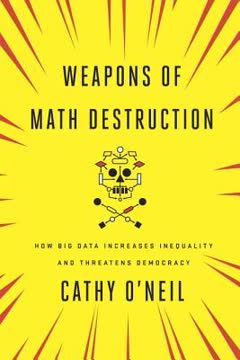Searching...
Top 10 Books on Fighting Financial Corruption
Explore these 10 must-read books that tackle financial corruption and economic justice through international law and insightful analysis.
Book Summaries
Mass Incarceration in the Age of Colorblindness
Michelle Alexander's groundbreaking work exposes the systemic racism and economic injustices of mass incarceration, making it essential for understanding the intersection of law and financial corruption.
3 Key Takeaways:
- Mass incarceration is the new racial caste system in America
- The War on Drugs was a political strategy, not a response to crime
- Colorblindness perpetuates racial inequality in the criminal justice system
The Rise of Disaster Capitalism
Naomi Klein's compelling analysis of how crises are exploited for economic gain sheds light on the darker side of capitalism, making it essential for understanding financial corruption.
3 Key Takeaways:
- Economic shock therapy: A tool for radical free-market transformation
- The Chicago School's influence on global economic policies
- Crisis as opportunity: Exploiting disasters for economic reform
How Big Data Increases Inequality and Threatens Democracy
Cathy O'Neil's examination of how algorithms can perpetuate inequality and corruption in various sectors highlights the need for ethical considerations in data usage.
3 Key Takeaways:
- Big Data algorithms can become Weapons of Math Destruction (WMDs)
- WMDs often punish the poor and reinforce inequality
- College rankings exemplify how WMDs can distort entire systems
The Hidden History of the Billionaires Behind the Rise of the Radical Right
Jane Mayer's investigative journalism reveals how dark money influences politics and perpetuates economic inequality, making it a crucial read for understanding financial corruption in governance.
3 Key Takeaways:
- The Koch brothers built a powerful political network to advance their libertarian agenda
- Dark money from wealthy donors reshaped American politics after Citizens United
- The Tea Party movement was largely funded and orchestrated by conservative billionaires
The First 5,000 Years
David Graeber's anthropological exploration of debt challenges conventional economic narratives, providing insights into how financial systems can perpetuate inequality and corruption.
3 Key Takeaways:
- Debt: A Foundational Concept in Human Society
- The Myth of Barter and the True Origins of Money
- The Evolution of Debt: From Ancient Civilizations to Modern Times
What's Become of the Common Good?
Michael Sandel critiques the meritocratic system that perpetuates inequality, offering insights into how economic structures can be reformed to promote justice and equity.
3 Key Takeaways:
- Meritocracy undermines social solidarity and fuels inequality
- The rhetoric of rising masks the reality of stagnant mobility
- Credentialism has become the last acceptable prejudice
Modern Monetary Theory and the Birth of the People's Economy
Stephanie Kelton's exploration of Modern Monetary Theory challenges traditional views on government spending and debt, providing a fresh perspective on economic justice and corruption.
3 Key Takeaways:
- The government is not constrained by revenue like a household
- Deficits are not inherently bad; inflation is the real constraint
- The national debt is not a burden on future generations
The Unknown Ideal
Ayn Rand's defense of capitalism as a moral system provides a controversial perspective on economic structures, challenging readers to consider the implications of financial corruption.
3 Key Takeaways:
- Capitalism is the only moral and practical economic system
- Individual rights and property rights are inseparable
- The profit motive drives innovation and progress
Breaking the Story of How the Rich and Powerful Hide Their Money
Frederik Obermaier's investigative account of the Panama Papers reveals the extent of financial corruption and the mechanisms that allow the wealthy to evade accountability.
3 Key Takeaways:
- Unprecedented Leak Exposes Global Offshore Financial System
- Mossack Fonseca: The Engine of the Shadow Economy
- Political Elites and Criminals Exploit Offshore Havens












